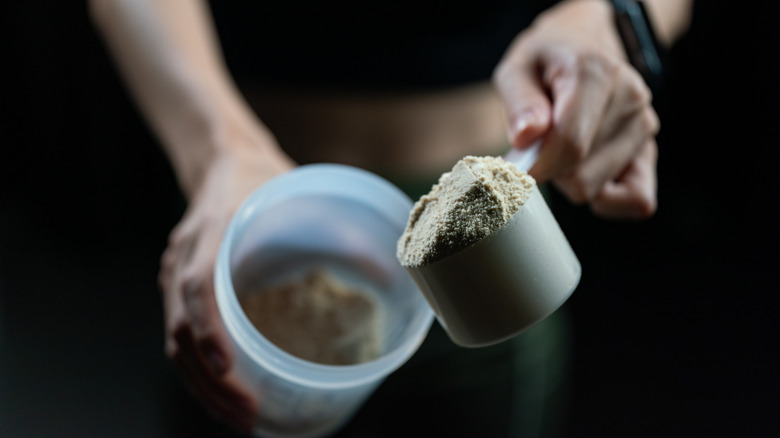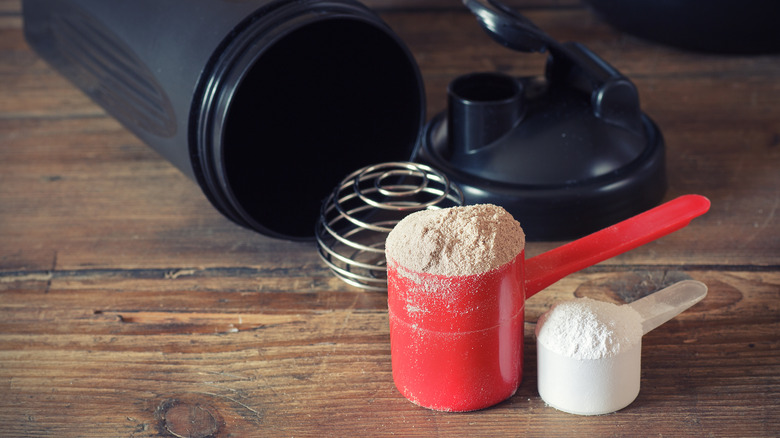Whey Protein Vs. Isolate: Which Is Better After A Workout?
There's a lot that goes into planning the perfect post-workout routine, but any good fitness enthusiast will tell you that protein after you finish up is important for muscle recovery. Many people opt for whey protein, but it isn't as simple as choosing whey over soy. There are a couple of types of whey to consider when planning your followup. If you're scanning the shelves and trying to optimize your protein intake, you may be wondering if whey protein or whey isolate is the better choice. Let's look at some factors that may help you narrow down your search.
It's no secret that consuming protein after a workout is important to recovery and achieving desired results. Protein immediately after a workout is crucial to muscle growth. "The 'anabolic window' implies that delaying protein intake by one hour or more after exercise will reduce or, worse still, prevent muscle anabolism [growth] during recovery," Oliver Witard, a protein metabolism researcher and senior lecturer at the University of Stirling in Scotland, told U.S. News & World Report. Whey is a great choice for this recovery period, but which whey is best?
Before we get into preferences, let's break down the difference between whey protein concentrate and whey protein isolate. Per Healthline, the main difference lies in the amount of protein contained in a scoop of protein powder. Isolates in particular are filtered to contain as much as 90% protein per scoop, while concentrates contain 25-89%. But what does that mean for muscle recovery? Which option is better?
Which whey works better?
Along with containing more protein, whey isolate also has lower levels of fat, carbohydrates, and lactose due to the processing and filtering (per Livestrong). So if you're looking to limit any of these values, isolate is certainly the smart choice. When it comes to exercise, isolate seems to perform ideally as well. In a 2006 study published in the International Journal of Sports Nutrition and Exercise Metabolism (posted at the National Library of Medicine), researchers looked at body builders' response to various recovery drinks. Those who received whey protein during recovery showed improved strength, more lean mass, and less fat mass when compared to those who consumed casein. Additionally, whey protein isolate mixes easily, comes in a variety of flavors, and has a long shelf life.
Along with having a higher protein content, however, it also has a higher cost, as Livestrong reported. So if you're looking to recover from your workout on a budget, opt for a concentrate or a blend. No matter how you choose to consume it, whey protein has a lot to offer. Whey protein is a complex protein that contains nine key amino acids and is the quickest to digest (per U.S. Dairy). Its easy digestion allows it to be distributed to muscles throughout the body.
That's the skinny on your whey protein options. If you can afford a higher cost for greater rewards, whey protein isolate is the way to go. But no matter how you cut it, be sure to throw some whey protein shakes into your post-workout routine.

